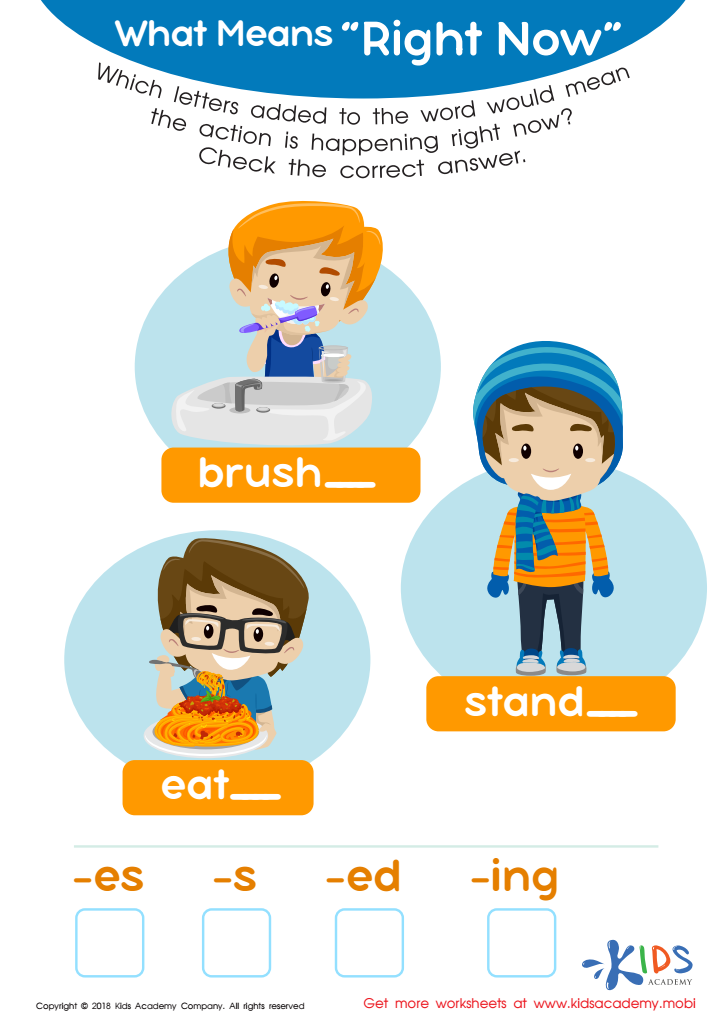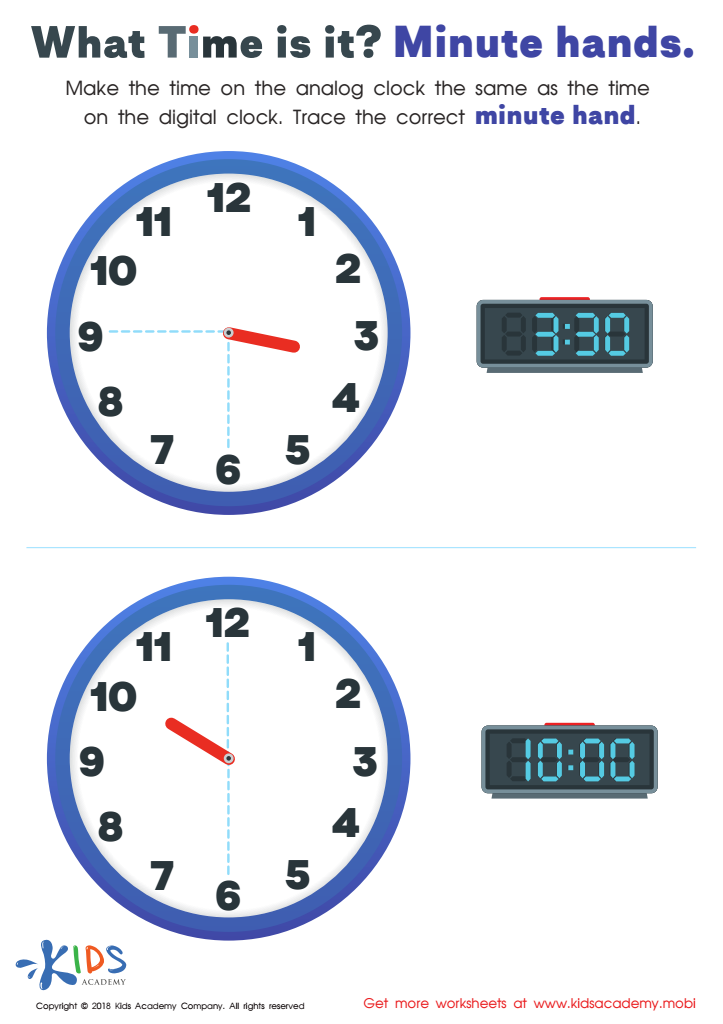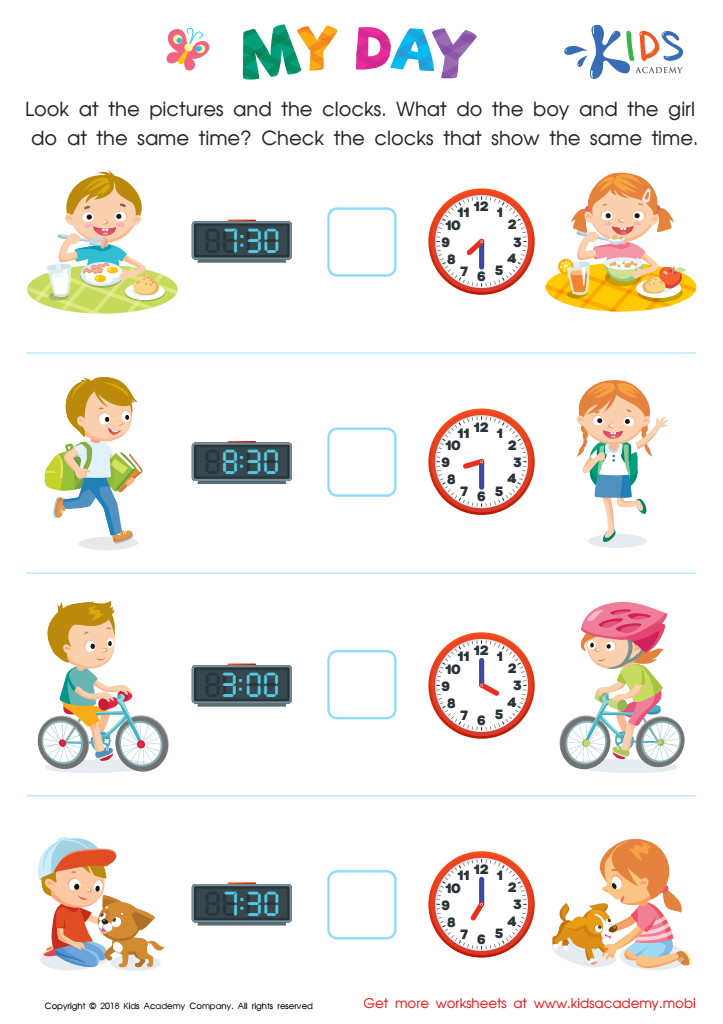Understanding time Easy Worksheets for Ages 4-7
3 filtered results
-
From - To
"Understanding Time Easy Worksheets for Ages 4-7" offers a delightful selection of printables designed to introduce young learners to the basic concept of time. These engaging activities simplify time-telling with colorful clocks, charming visuals, and fun exercises that make mastering hours and minutes a joy. Ideal for preschool and early elementary students, these worksheets support foundational time skills, encourage cognitive development, and enhance number recognition. Perfect for both classroom and home use, our time-telling resources help each child build confidence while making learning interactive and enjoyable. Guide your little ones on their timed adventure today!


What Means "Right Now" Worksheet


What Time Is it? Minute Hands Worksheet


My Day Worksheet
Understanding time is crucial for young children ages 4-7 because it lays the foundation for their daily routines and overall development. At this age, children are beginning to grasp concepts of sequence and duration, which are essential for time management. By learning about time, they can better understand their daily schedules, such as when they wake up, meals, playtime, and bedtime. This helps establish a sense of security and predictability, which are important for emotional development.
For parents and teachers, teaching time-related concepts fosters independence and responsibility in children. Knowing the difference between morning, afternoon, and evening, understanding how to read a clock, or recognizing the importance of punctuality helps them operate within their environments effectively. Moreover, learning to manage time is a lifelong skill that aids in self-discipline and organization.
Activities like using timers for tasks, reading schedules, or playing interactive games involving clocks can make this learning process enjoyable. Early exposure to time concepts also enhances cognitive skills, reinforces number recognition, and math abilities, given that time-telling involves numbers and their sequences.
Therefore, parents and teachers should prioritize teaching time to young children to equip them with the tools they need for academic and life success, while also making their everyday experiences more comprehensible and structured.
 Assign to My Students
Assign to My Students















